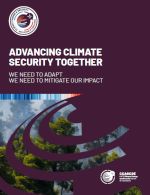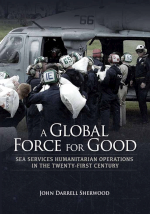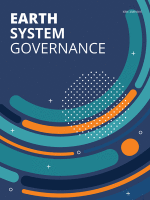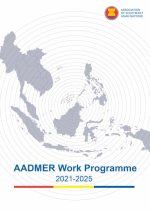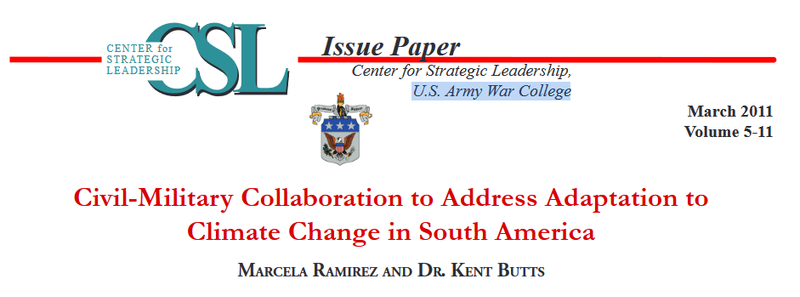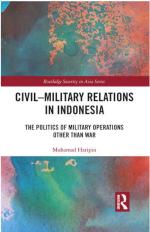PUBLICATIONS
ADVANCING CLIMATE SECURITY TOGETHER
2024 - The purpose of this publication is to celebrate the establishment of the CCASCOE, highlighting its mission to advance understanding and action on climate-related security challenges.
Boots on the ground: Raising resilience
8 August 2024 - This landmark report was produced by the Committee on Australia’s Disaster Resilience and covers the impact of natural disasters due to climate change and includes 10 key recommendations for action to improve disaster response and recovery.
Acapulco's Unending Nightmare
30 November 2023 - In the wake of Hurricane Otis’ devastating strike on Acapulco Cascade Institute’s Gabriela Vieyra-Balboa delves into the heart of the matter, peeling back layers of systemic issues that extend far beyond the aftermath of a single natural disaster.
A GLOBAL FORCE FOR GOOD: SEA SERVICES HUMANITARIAN OPERATIONS IN THE TWENTY-FIRST CENTURY
5 September 2023 - In this volume, John Sherwood examines the response of the U.S. Navy and its partners to three of the most destructive disasters in recent history: the 2004 earthquake and tsunami in Indonesia, Hurricane Katrina in 2005, and Japan's triple disaster in 2011. Based on original sources and numerous interviews, Sherwood not only explores a topic rarely examined by historians but crafts a vivid and compelling narrative.
Aiding or undermining? The military as an emergent actor in global climate governance
September 2021 - The military is emerging as an important actor in climate change mitigation and adaptation, particularly when it comes to responding to climate extremes. While not generally considered a “governance actor” in scholarship on climate governance, militaries increasingly participate in climate-related knowledge production, resource provision, and decision-making. However, the nature and degree of involvement of militaries in these issues vary from context to context, based on political, socio-cultural, institutional, and economic conditions.
American Humanitarianism: The Unique Opportunity for US Military Policy in a World Increasingly Confronted with the Realities of Climate Change
2022 - The foreign policy of the United States is at a point of inflection. Policymakers are confronted by the arrival of climate change, intensifying US-China great power competition, damaged American credibility, faltering US global health leadership, and the lack of American grand strategy. Most pressingly, the window for completely preventing climate change has passed as increasing temperatures, rising sea levels, and more frequent and devastating natural disasters effect populations worldwide. In order to develop an effective response to these challenges, we should learn from previous humanitarian assistance and disaster relief operations (HADR) which have been shown to significantly change a country’s perception abroad, deepen bilateral and multilateral cooperation, improve the readiness of a country’s military, while also building resilience and providing aid during times of need.
ANZUS cooperation in humanitarian assistance and disaster response in the Asia-Pacific: ships in the night?
November 2019 - This article discusses how the ANZUS states of United States, Australia, and New Zealand that sit on the fringes of the Asia-Pacific, are increasingly using their armed forces to deliver Humanitarian Aid and Disaster Response (HADR) as a way of engaging with the region. This is a neglected topic both in international relations and research on regional security in the Asia Pacific. This assessment reveals new developments in regional engagement between the ANZUS states and the Asia-Pacific.
Artificial Intelligence for Climate Security: Possibilities and Challenges
December 2023 - This SIPRI Policy Report, funded by Mistra Geopolitics, outlines the opportunities that AI presents for managing climate-related security risks. It gives examples of the use of AI in the field and delves into the challenges—notably methodological and ethical—associated with the use of AI for climate security. The report concludes with recommendations for policymakers and researchers who are active in the area of climate security or who use AI for sustainability.
ASEAN Agreement on Disaster Management and Emergency Response (AADMER) Work Programme 2021-2025
2020 - The AADMER Work Programme 2021-2025 is guided by the vision set by the AADMER to "build a region of disaster-resilient nations, mutually assisting and complementing one another, sharing a common bond in minimising adverse effects of disasters in pursuit of safer communities and sustainable development".
Civil-Military Collaboration to Address Adaptation to Climate Change in South America
March 2011 - The article examines the impact of climate change on South America's stability and economy, emphasizing the need for collaboration between civilian agencies and the military.
Civil-Miliary Cooperation in Disaster and Emergency Response: Practices, Challenges, and Opportunities
13 January 2022 - Civilian authorities increasingly request military involvement in national emergencies and (inter)national disasters. This article aims to contribute to our understanding of these new civil-military interactions.
CIVIL-MILITARY RELATIONS IN INDONESIA
30 June 2021 - This book shows how peacekeeping, humanitarian assistance and disaster relief, and counter-terror missions have been reinvented by the Indonesian military (Tentara Nasional Indonesia, TNI) to adhere to its politico-institutional interests rather than to divert military attention from politics. In contrast with conventional arguments about the rationale of MOOTW in promoting military professionalism, this book provides the first critical analysis of the development of these missions and correlates them with TNI’s concerted effort to preserve territorial command structure – a military network that parallels the civilian bureaucracy down to the village level. The book argues that the military in Indonesia remains domestically political amidst high intensity of international activism.
